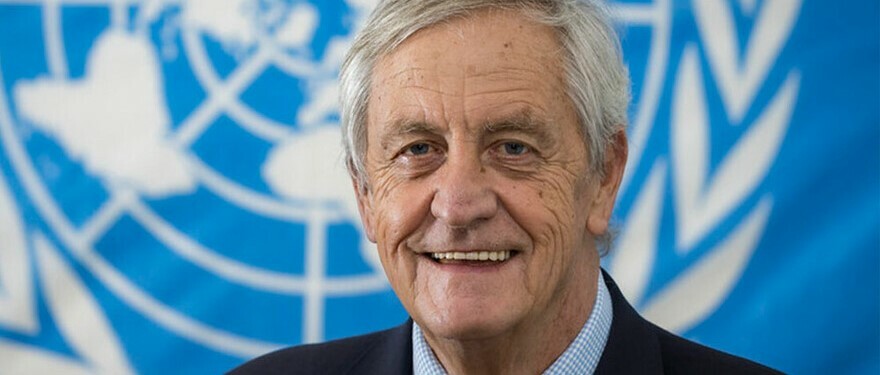In a special event commemorating United Nations Day, Nicholas Haysom on Tuesday, the Special Representative of the UN Secretary-General, delivered an address in Jonglei State, South Sudan. The gathering was attended by esteemed dignitaries, members of the diplomatic community, heads of UN agencies, NGOs, civil society representatives, and UN colleagues.
Haysom began his speech by reflecting on the historical significance of the United Nations Charter, which was signed 78 years ago after World War II. He emphasized the core principles of the Charter, highlighting the importance of cooperation, peace, development, and human rights.
The Special Representative noted that the Charter’s guiding principles remain relevant today, emphasizing the significance of collaboration over competition and dialogue over conflict. He stressed that documents alone cannot drive change; it requires the commitment of political leaders to bring the words to life.
Haysom drew parallels between the United Nations Charter and the Revitalized Agreement for the Resolution of the Conflict in South Sudan, emphasizing the importance of South Sudanese leadership and political will in shaping the nation’s future.
He acknowledged the UN’s support for South Sudan since its independence, evolving from state-building to peace restoration, development initiation, and civilian protection. Haysom highlighted the country’s upcoming post-independence elections and the efforts to consolidate the 2018 Revitalized Peace Agreement.
However, he acknowledged that significant challenges remain, with South Sudan grappling with a humanitarian and economic crisis amidst regional conflicts and internal divisions. The prioritization of international assistance for South Sudan faces challenges due to competing global priorities.
Despite these obstacles, Haysom expressed confidence in South Sudan’s potential and its ability to achieve peace, prosperity, and innovation. He emphasized the UN’s involvement in establishing vital institutions for sustainable development based on human rights, the rule of law, justice, and accountability.
Haysom encouraged unity among South Sudanese, referencing the success of the national basketball team, the Bright Stars, as an example of what can be achieved when rivalries and differences are set aside.
He urged political leaders and signatory parties to bridge the gap between their dreams and reality, and he called on the international community and the United Nations to remain committed to this objective.
Haysom expressed gratitude to humanitarian workers and peacekeepers who tirelessly work for the welfare of the most vulnerable and for community safety. He also acknowledged the support of communities, the productive relationship with the host government, and the contributions of donors and regional organizations.
In conclusion, Haysom called on all to recommit to the principles and values enshrined in the UN Charter and the goals of the Revitalized Peace Agreement. He believed that these documents continue to bind all stakeholders as South Sudan progresses on its journey.




